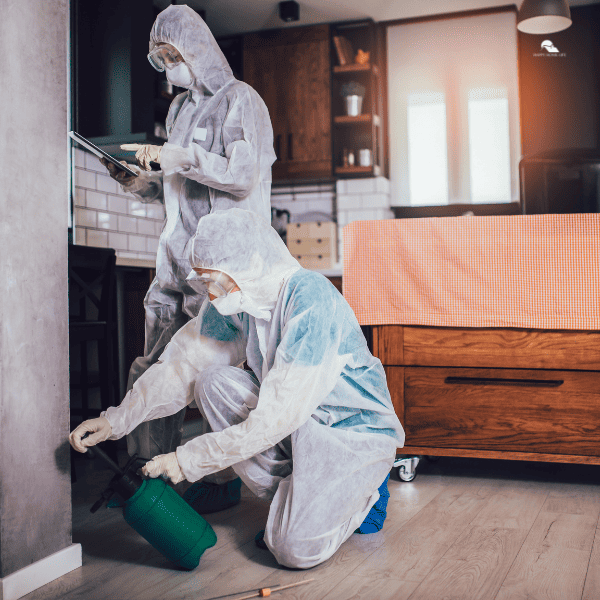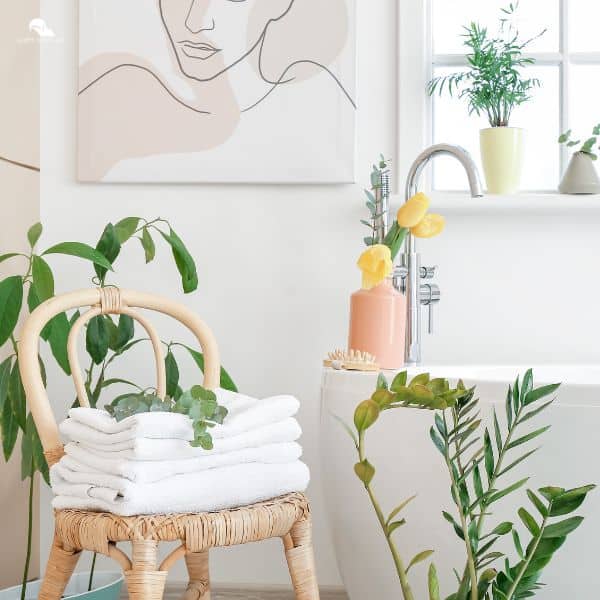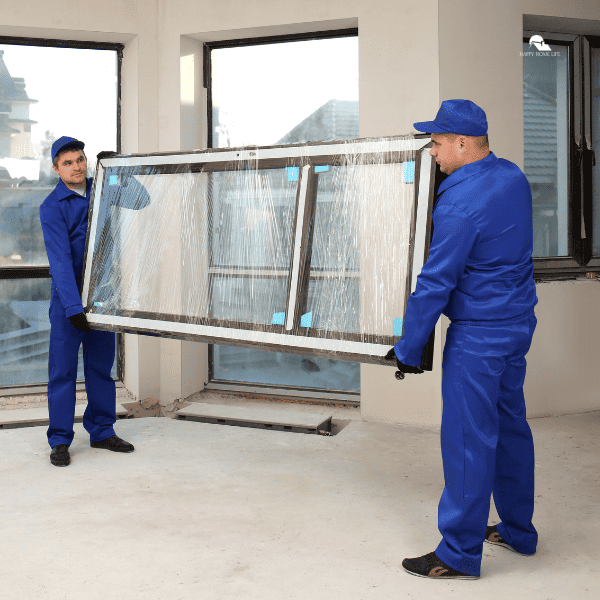Gardening is more than a hobby—it’s an art form that combines patience, diligence, and a lot of love for the plants you nurture.
However, the presence of pests can be a perpetual blemish on this otherwise serene canvas.
Your roses may be blooming and your herbs flourishing, but if ants march on your soil or aphids infest your lettuce, the whole effort can feel wasted.
This brings us to the age-old question: how does one maintain a perfect, pest-free garden without resorting to harsh chemicals?
The answer lies in tried-and-true DIY strategies that you can easily employ in your backyard.
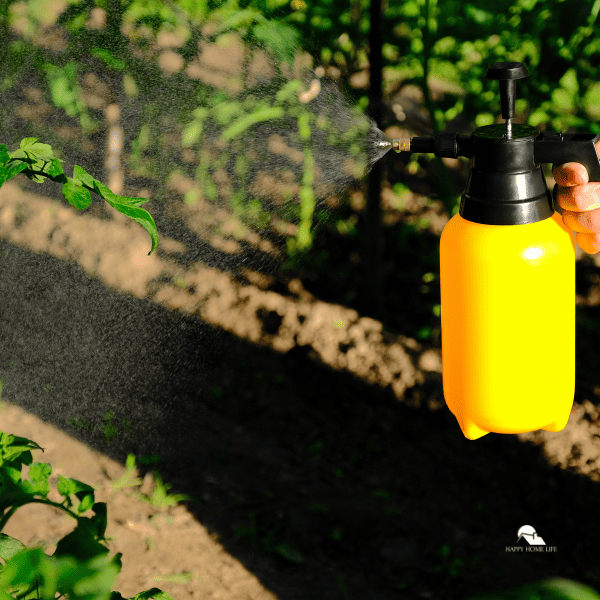
Ants In Your Garden: Don’t Panic, Take Action
Ants are incredibly resourceful insects, and their colonies can thrive in a variety of environments.
While some ants are beneficial as they prey on other pests, many can be nuisances that make your gardening journey far less enjoyable.
These tiny invaders can be particularly irksome as they disrupt root systems, encourage aphid populations, and even get into your home if not handled appropriately.
Finding A Reliable Guide On Ants
The first step to controlling ants in your garden is acquiring a reliable source of information that distinguishes between the different types of ants and their behavior patterns.
There are comprehensive guides and scientific publications that cover the identification, habits, and suitable control measures for various ant species.
These references will provide you with vital knowledge about whether the ants in your garden are beneficial or harmful.
Knowledge is power, and in this case, it’s the power to maintain a healthy garden.
Natural Remedies To Keep Ants At Bay
To counter the ant problem in an eco-friendly manner, you can try natural solutions such as diatomaceous earth or cornmeal.
Spread a thin layer of food-grade diatomaceous earth around the plants where you notice ant activity.
The diatomaceous earth will dehydrate the ants, eventually causing them to die.
Cornmeal, on the other hand, acts as bait. Ants carry the cornmeal back to their nests, but they can’t digest it, which gradually kills off the colony.
Employing Physical Barriers
Ants are excellent climbers but poor swimmers. Creating water barriers around sensitive plants can deter them effectively.
Fill shallow dishes with water and place the pots of your sensitive plants in them. Ants won’t be able to cross the water barrier, thus protecting your plants.
Similarly, adhesive tapes placed around the trunks of trees can prevent ants from climbing up and harming the foliage.
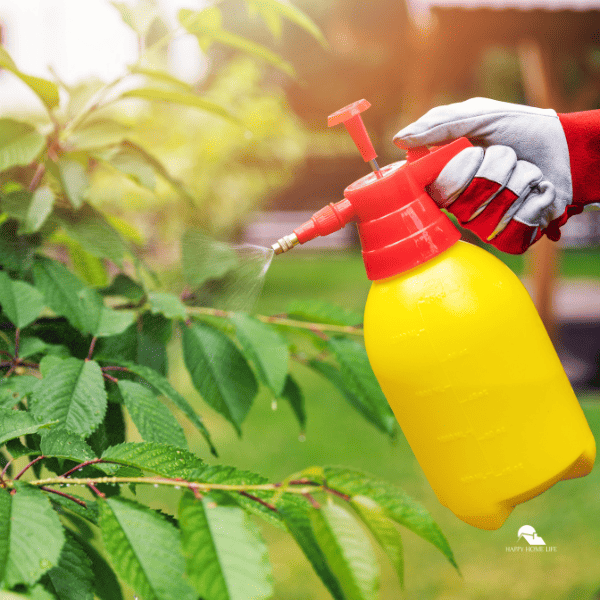
Growing Your Herbs Indoors: A Pest-Free Alternative
Growing herbs indoors is not only a practical way to have a year-round supply of your favorite seasonings but also a proactive approach to pest control.
Since the controlled environment indoors provides fewer opportunities for pests to thrive, your herbs are more likely to grow healthy and robust.
The Importance Of Proper Drainage And Ventilation
One of the key factors in successfully growing herbs indoors is to ensure that your pots have proper drainage and that the area has good air circulation.
Overwatering is a common mistake when it comes to indoor gardening, and stagnant water can attract a whole new set of pests.
Make sure your pots have drainage holes and consider using a fan for better air circulation.
Choosing The Right Soil And Fertilizer
Your choice of soil and fertilizer can dramatically influence the health of your indoor herbs.
Organic potting soil mixed with compost provides a rich base for most herbs. A balanced liquid fertilizer can be applied every two to four weeks to maintain nutrient levels.
Light Requirements For Indoor Herbs
Herbs need a lot of light to grow properly, and insufficient lighting is a common issue in indoor gardening.
Position your plants in a south-facing window if possible, or invest in LED grow lights. A minimum of 6-8 hours of light per day is necessary for most herbs.
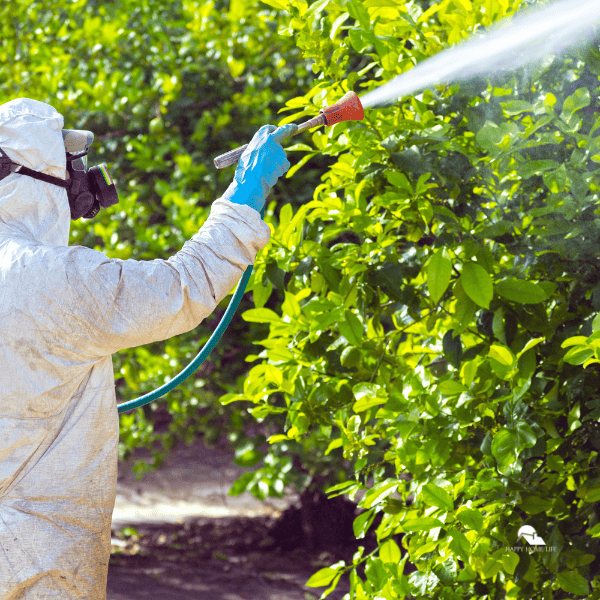
Starting A Garden: Planning Is Key
As the saying goes, “Failing to plan is planning to fail.” Starting a garden involves a lot of variables, and pest control is just one of them.
A well-planned garden can make your pest control efforts significantly more effective.
Selecting Pest-Resistant Plants
The first line of defense against garden pests is to plant species that are naturally resistant to them.
Many perennials and shrubs are less appealing to common pests and can serve as natural barriers. Planting garlic, onions, or chrysanthemums can also deter certain pests.
The Role Of Companion Planting
Companion planting is an age-old practice where certain plants are grown together to mutually benefit each other.
For instance, basil can repel flies and mosquitoes, so planting it near tomatoes can protect the latter from these pests.
Research which plants make good companions for effective, natural pest control.
Regular Monitoring And Timely Intervention
Pest control isn’t a “set it and forget it” endeavor. Regular inspections of your garden can catch infestations before they get out of hand.
Early detection allows for timely, minimal intervention, which is usually easier to manage and less damaging to your plants and the environment.
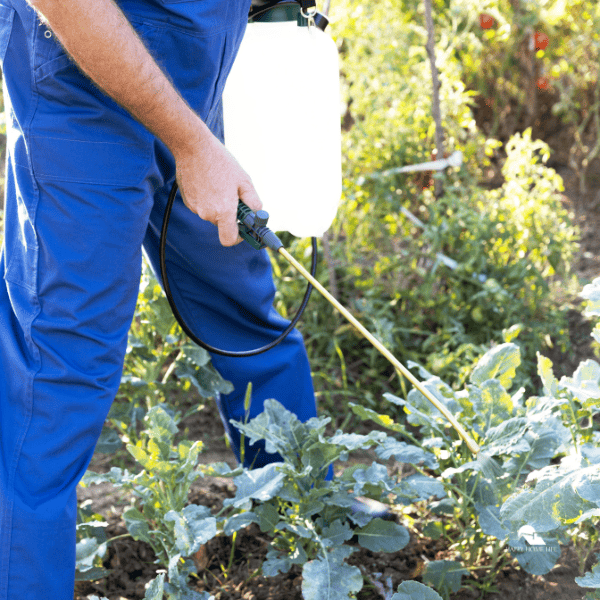
The Role Of Technology In Modern Gardening: Tools For Pest Control And Beyond
As we move further into the 21st century, technology increasingly intersects with traditional practices like gardening.
From smart irrigation systems to plant identification apps, the modern gardener has a range of technological tools at their disposal.
This is particularly useful for pest control, where conventional methods can sometimes fall short or prove to be environmentally unfriendly.
Smartphone Apps For Pest Identification
Recognizing the type of pest infesting your garden is the first step in effective control.
Various smartphone applications now offer the ability to identify pests through a simple photograph.
Once the pest is identified, these apps often provide immediate suggestions for natural remedies, making it easier for you to address the problem quickly and effectively.
Automated Deterrent Systems
Sensor-based deterrent systems are a non-intrusive way to keep pests away.
These devices can emit frequencies or ultrasonic waves that are uncomfortable for certain pests but are harmless to your plants and pets.
They can be particularly useful in deterring larger animals like deer or raccoons from invading your garden.
IoT-Enabled Monitoring Systems
The Internet of Things (IoT) has reached our gardens, too. Sophisticated monitoring systems can now keep track of soil moisture, weather conditions, and even pest activity.
This allows you to react swiftly and accurately when signs of a pest invasion appear.
Some systems can even be programmed to apply natural deterrents automatically, taking the guesswork out of your gardening woes.
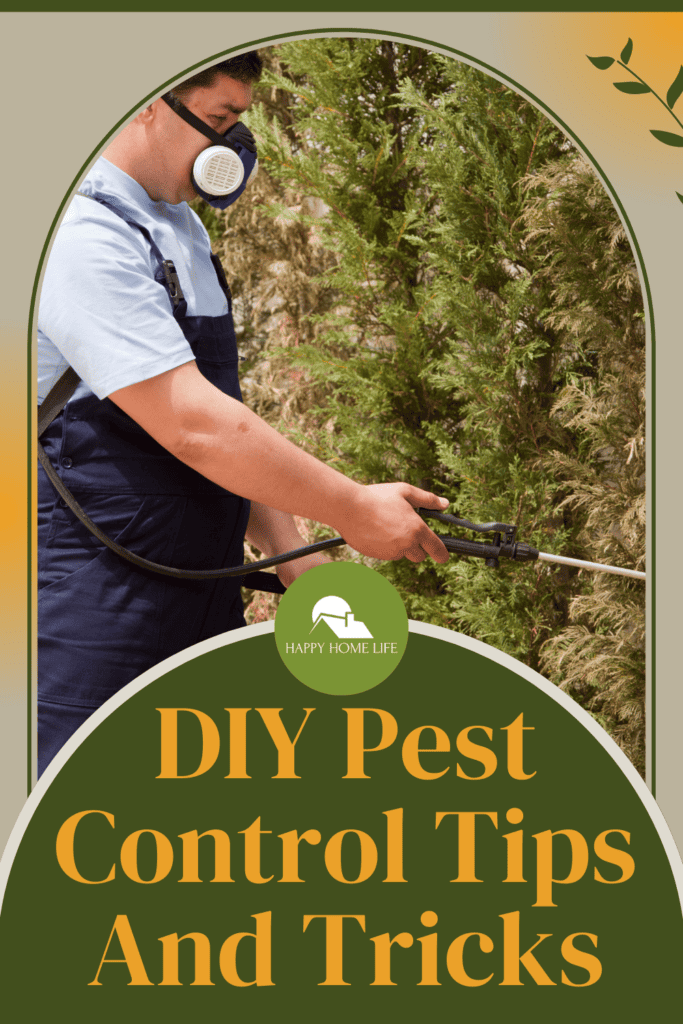
Final Considerations
In summary, a thoughtful approach to gardening that incorporates natural pest control methods, indoor herb growing, and proactive planning can yield a beautiful, flourishing, and almost pest-free garden.
After all, a well-tended garden is a lifetime investment in both beauty and well-being.



